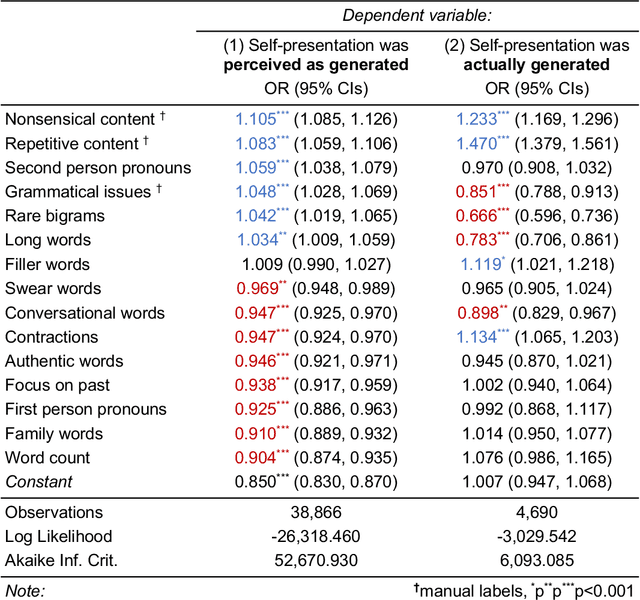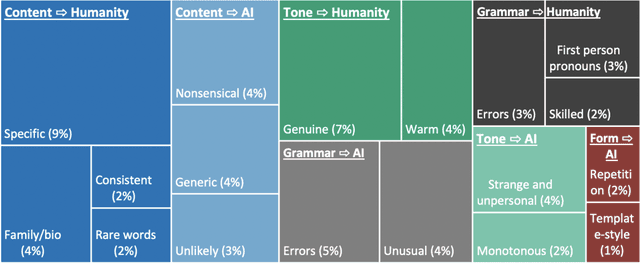Human Heuristics for AI-Generated Language Are Flawed
Paper and Code
Jun 15, 2022



Human communication is increasingly intermixed with language generated by AI. Across chat, email, and social media, AI systems produce smart replies, autocompletes, and translations. AI-generated language is often not identified as such but poses as human language, raising concerns about novel forms of deception and manipulation. Here, we study how humans discern whether one of the most personal and consequential forms of language - a self-presentation - was generated by AI. Across six experiments, participants (N = 4,650) tried to identify self-presentations generated by state-of-the-art language models. Across professional, hospitality, and romantic settings, we find that humans are unable to identify AI-generated self-presentations. Combining qualitative analyses with language feature engineering, we find that human judgments of AI-generated language are handicapped by intuitive but flawed heuristics such as associating first-person pronouns, authentic words, or family topics with humanity. We show that these heuristics make human judgment of generated language predictable and manipulable, allowing AI systems to produce language perceived as more human than human. We conclude by discussing solutions - such as AI accents or fair use policies - to reduce the deceptive potential of generated language, limiting the subversion of human intuition.
 Add to Chrome
Add to Chrome Add to Firefox
Add to Firefox Add to Edge
Add to Edge